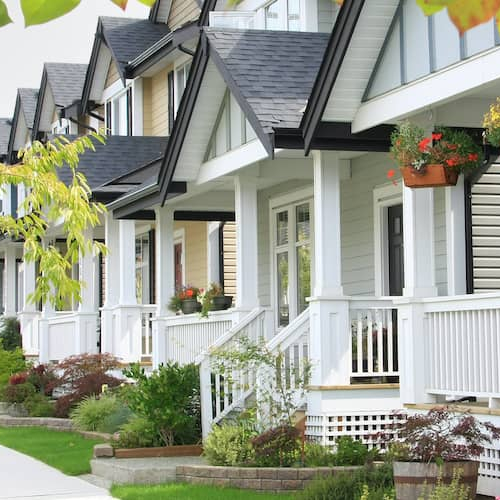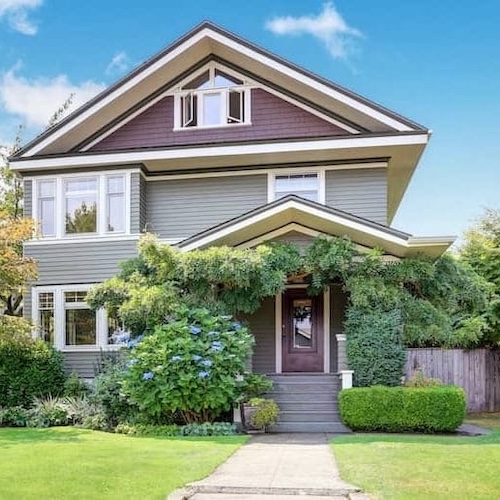HOA special assessment: What it is and how to handle it
Contributed by Sarah Henseler
Dec 4, 2025
•4-minute read

When you live in a neighborhood with a homeowners association (HOA), you must pay monthly dues. These dues help cover the services and amenities provided by the HOA. In some situations, the HOA may issue a special assessment, which is an additional fee that members must pay on top of their typical monthly dues.
HOAs have a fiduciary responsibility to manage the HOA’s funds and services properly. Special assessments can be used to collect money for necessary projects or other reasons. We’ll break down how special assessments work and what you need to know about them.
What is an HOA special assessment?
HOAs collect regular monthly dues but can also issue special assessments. A special assessment is an additional fee that members of the HOA must pay in addition to their regular dues payments.
Typically, special assessments occur because the HOA needs to raise funds for an immediate or unexpected expense. How and when a special assessment can occur depend on the covenants, conditions, and restrictions (CC&Rs) of the HOA. Each homeowner in the association agrees to the CC&Rs when they buy their home, so they are obligated to pay the special assessment fee.
In some cases, the amount an HOA can raise through special assessments is limited. For example, the CC&Rs may place restrictions on the HOA board. State law can also add limits. For example, in California, a special assessment can’t exceed 5% of the budgeted expenses for the year.
Why HOAs charge special assessments
HOAs usually charge special assessments when they have a need to raise money. There are a few reasons this can happen.
Necessary community projects
One common reason that an HOA may need to raise money through a special assessment is if it needs to pay for an essential community project.
HOAs are responsible for community maintenance, such as keeping up sidewalks and parks, and offering amenities like tennis courts or pools. Imagine a situation where an earthquake damages the sidewalks in the community, creating dangerous tripping hazards. A condo association could need to raise money to repair a roof leak or plumbing problem, where as an HOA may need a special assessment to raise funds to pay for fixing the sidewalks.
Ideally, your HOA would have reserve funds saved from its regular HOA fees that can help pay for these costs, but major expenses, or back-to-back problems, could see those funds depleted and the HOA needing to raise cash quickly.
Inadequate reserve funds
A good HOA should have some money saved and set aside. This is called a reserve fund.
HOA reserve funds can be used to handle unexpected expenses that need to be paid, as well as for long-term maintenance or replacement of things with a useful lifespan. For example, a condo association should be saving money in the reserve fund for things like eventual roof replacements.
In some states, there is a legal requirement that HOAs set money aside in a reserve fund or that the HOA do an annual study to ensure that it has sufficient reserves.
If your HOA finds that it does not have sufficient reserves, it may use a special assessment to replenish its cash cushion. This can happen even in states where reserves are not legally required.
What to expect as a homeowner
If you own a home in an HOA, you need to understand how special assessments work and how to be ready for them.
Paying your special assessment
When an HOA levies a special assessment, it will sometimes give homeowners two ways to pay for the special assessment:
- Up front: You pay the full amount of the assessment in one immediate payment
- Monthly: You can split the amount of the special assessment over a period, usually of 6 months to a year or so
If the amount of the assessment would create a financial burden, don’t be afraid to ask for a payment plan.
Keep in mind that you must pay the assessment one way or another. If you try to skip payments, you’ll likely face late fees, and the HOA could place a lien on your home, which can ultimately lead to foreclosure on your home.
Challenging an HOA special assessment
In some situations, you may be able to challenge the special assessment and avoid paying for it.
For example, the CC&Rs of your HOA may require that all owners in the HOA vote on whether to allow a special assessment. If your HOA tries to skip this step, you could challenge the assessment.
Outside of that kind of specific scenario, odds are good that you’ll have to pay the assessment. If the HOA acted within its community rules and local laws, you won’t have grounds to challenge the assessment. Even if you do try to challenge it, you could wind up in court, where you’re not guaranteed to win and could have to pay significant court fees that add up to more than the amount of the assessment.
How HOA special assessments affect home buying and selling
Special assessments can come at almost time. If you want to buy or sell a home in an HOA, a special assessment could throw a wrench into the process. After all, who wants to buy a home knowing that they’ll have to pay thousands of extra dollars in HOA special assessments right when they move in?
When buying a home in an HOA, look out for these things:
- Special assessment disclosures: Real estate agents must let a buyer know if there’s an assessment in effect or upcoming. This may turn off a buyer if the assessment is high.
- Passing assessments from seller to buyer: If an assessment is only partially paid, the remaining balance transfers to the new property owner. Again, this may trouble a potential buyer who doesn’t want to pay for previous upgrades or repairs in the community.
- Reflection on the HOA: A large assessment or multiple assessments within a short period of time may make the HOA look irresponsible. Buyers could think twice about living under this HOA.
The bottom line: Research HOA homes and condos before buying
Living in a neighborhood with a HOA can be a great choice for many people. The services and amenities offered by the HOA can greatly improve your quality of life at a reasonable monthly cost. However, there may come times when special assessments greatly increase the cost of living in an HOA.
If you want to buy a condo or a property that is part of an HOA, it’s important to do your due diligence on the HOA and its management to make sure you don’t wind up facing expensive special assessments down the road.
When you’re ready to start shopping for a home or condo, Rocket Mortgage® is here to help. You can start the homebuying process by applying for a mortgage.

TJ Porter
TJ Porter has ten years of experience as a personal finance writer covering investing, banking, credit, and more.
TJ's interest in personal finance began as he looked for ways to stretch his own dollars through deals or reward points. In all of his writing, TJ aims to provide easy to understand and actionable content that can help readers make financial choices that work for them.
When he's not writing about finance, TJ enjoys games (of the video and board variety), cooking and reading.
Related resources

5-minute read
A guide to freehold estates
A freehold estate is a type of property ownership that can be held indefinitely and passed on forever. Learn more about the types of freehold estates here.
Read more
6-minute read
What is adverse possession in real estate?
Adverse possession can give trespassers the legal right to claim ownership of your property. Learn more about adverse possession and how to prevent it.
Read more
5-minute read
How to increase your house value
Upgrading parts of your home is a great way to increase its value. Here are 9 tips about how to get started and finance your renovation projects.
Read more